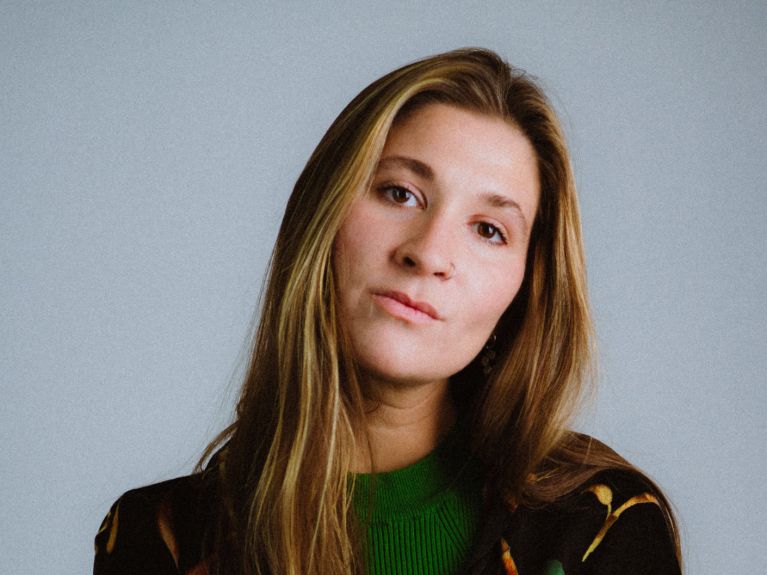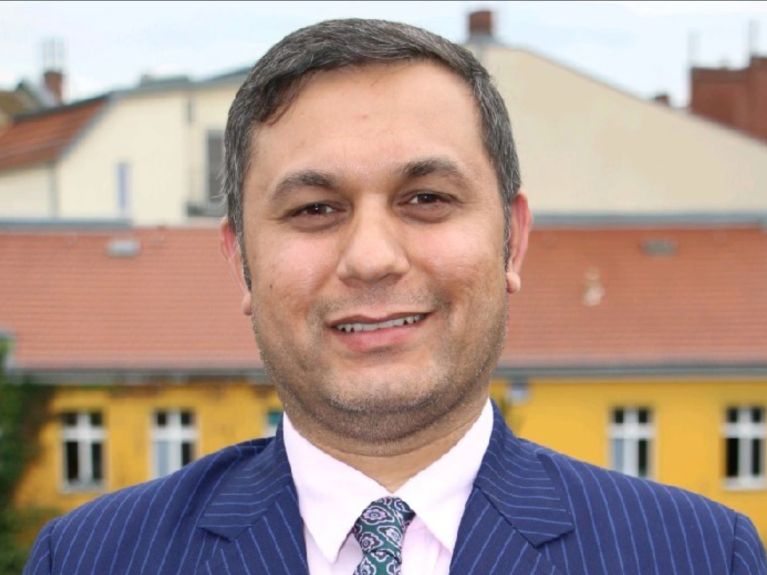“I can breathe freely here”
Living in exile in Germany: three journalists explain what freedom of expression means to them.

“The right to freedom of expression is worth more than anything to me - which is why I left my home country, Russia. It became impossible to speak or think freely there. For me, freedom means a sense of inner independence and an absence of fear. Dozens of my colleagues have been imprisoned in Russia simply for doing their work and not being afraid. I continue to engage in investigative journalism - for myself and for them. Germany has become my new home because I can work and breathe freely here.”
Katerina Fomina was sentenced in absentia to eight and a half years in prison in Russia. She has worked for many years for Novaya Gazeta, an oppositional newspaper that has meanwhile been banned in Russia, and reported on Russian war crimes in Ukraine.

“Freedom of expression has allowed me to understand from a deeper perspective how our society works and how a democracy is built. In both respects, my country - Guatemala - and Germany differ a great deal. In Guatemala we are still struggling to ensure that everyone has a voice. Both citizens and journalists have experienced repression and vendettas from powerful groups. Freedom of expression is a very important part of the culture in Germany and, despite the legal limits imposed on it, has made society more mature. Over the past four years here I have seen that everyone is free to express their opinion. And many of them give a voice to those who have been silenced or oppressed. German society may not be perfect, but it is more just and humane.”
Luis Assardo is a journalist and scientist who focuses on fake news, hate speech and troll factories - that is to say organisations that run large-scale disinformation campaigns.
Luis Assardo ist Journalist und Wissenschaftler und beschäftigt sich mit Fake News, Hassrede und Trollfabriken, also Organisationen, die großangelegte Desinformationskampagnen betreiben.

“As a journalist with experience of reporting under authoritarian regimes, freedom of expression means the ability to share unbiased information without fear. In Germany, I value the legal protections and open environment that allow me to report on issues like corruption and governance - topics I covered under far more dangerous circumstances in Afghanistan. Here in Germany I can truly practise independent journalism.”
Zia Ferozpur worked as a university lecturer and journalist in Afghanistan. Like Katerina Fomina and Luisa Assardo, he is supported by the Journalists in Exile programme. The European Centre for Press and Media Freedom in Leipzig runs the programme with funding from the German government and from the state of Saxony.
Zia Ferozpur hat in Afghanistan als Hochschuldozent und Journalist gearbeitet. Wie Fomina und Assardo wird er durch das Programm Journalists in Exile gefördert. Das European Centre for Press and Media Freedom in Leipzig setzt es mit Mitteln der Bundesregierung sowie des Bundeslandes Sachsen um.


